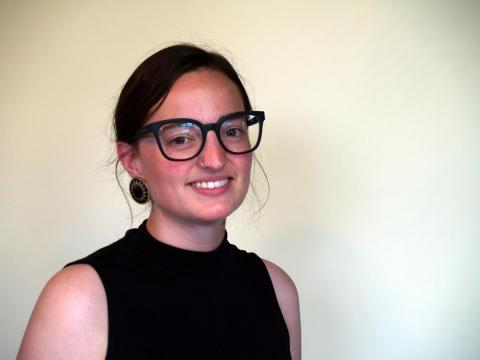
Grace East
MA, Linguistic Anthropology, University of Virginia, 2018
MA, Linguistic and Cognitive Anthropology, Wayne State University, 2016
BA, Arts and Humanities, Michigan State University, 2013
Specialties
Linguistic anthropology, language and place, language blending and emergence, language disinvention, multilingualism, migration, communities who use Hausa in Accra, Ghana, West Africa
My work is based in Accra, Ghana with community members of Nima, a widely diverse, but predominantly Muslim immigrant neighborhood. My research focuses on mutually reinforcing themes of language maintenance/emergence and place-making as well as how immigrants from across West Africa who used Hausa language have shaped and been shaped by the linguistic ecology of present-day Accra. In Nima, the community-wide use of a local Hausa variety and practice of Islam promote values of hospitality and unity that allow for a diversity of immigrants to feel a sense of belonging. Additionally, I examine the ways in which multilingual users of Hausa engage with language mixing and creation of emergent codes in a linguistically pluralistic setting. Based on intensive participant observation, semi-structured interview, and engagements with local social media content, I compare knowledge from Newman’s (2000) Hausa grammar as well as Sadat’s (2016) overview of Ghanaian Hausa to argue that this emerging Hausa creole/mixed language draws from Ghanaian Englishes, Akan Twi varieties, and more. This results in patterns of linguistic blending that manifest lexically, morphologically, and phonologically as well as pragmatically in conventional discourse patterns. My research engages with Makoni and Pennycook’s (2005) notion of language “disinvention,” which urges critical reexamination and deconstruction of the colonial presupposition that languages are distinct, bounded, and isomorphically tied to one people and one territory. In Nima, the local Hausa variety is one of fluidity and adaptability, which changes in response to the linguistically complex people who use it as well as the language ecologies in which it thrives.